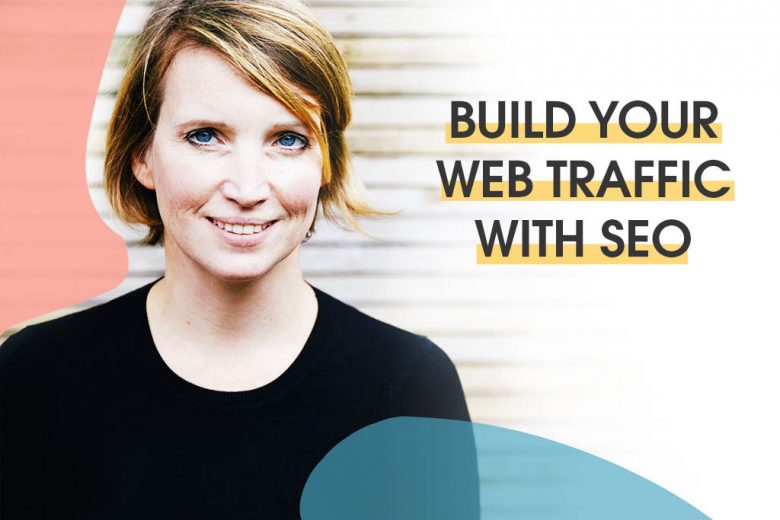Three SEO mistakes that are costing small businesses valuable web traffic – and customers
Are you getting your fair share of hits from Google? Or is one of these three mistakes robbing you of valuable web traffic?
What small business wouldn’t love more traffic from search engines like Google? Ranking on the first page (even better – at the TOP of the first page) for the right search terms is the dream for many businesses. And with good reason.
Higher placement in SERPs (search engine results pages) means more visibility for your business. It also means more hits on your website, and more trust (customers assume you must be good if you rank highly). And if your website does its job properly, it should lead to more business for you.
So SEO isn’t just a vanity game, or a nice-to-have, it could be the making or breaking of your business.
Indeed, your position on SERPs matters A LOT. According to Search Engine Journal, one study showed that the first three organic search ranking positions got in nearly 40% of all click-throughs, while as many as 30% of all results on page one and two don’t get any clicks at all. (Google gets a whopping 87% of all search traffic.)
So if you’re not at the top, you might as well be nowhere. And to help you inch closer to that precious top slot, here are three mistakes you need to avoid.
1) Writing for SEO
Many, many years ago, when SEO first emerged as a concept, I was hired to work on the rebranding of one of a large corporation’s flagship global products.
I was given every piece of work – from press ads to welcome packs – except the website. The rationale was that they needed a specialist SEO copywriter for the web copy, so they sent that piece of copy to one.
Time passed, and I completed all my work to meet the brand’s launch deadline. But at the last minute there was a problem – their web copy was unusable and they needed me to rewrite it urgently.
The reason why? The ‘SEO copywriter’ wasn’t a copywriter at all, but someone who had learned the basics of SEO (which every copywriter should know anyway, and I certainly did). And the work they’d submitted wasn’t fit for purpose; they’d simply stuffed the client’s keywords into text that made little sense.
Why am I telling you this here? Because, more than 10 years on I STILL see too many businesses making this mistake. While keyword stuffing is no longer rife (thanks to penalisation by search engines like Google), too many small business websites have clearly been written with SEO in mind, and little else.
And this is a big error. Because search engines use many factors to rank websites, and how naturally your copy is written, and the user’s reading experience of your website is among them.
Naturally write great copy (ensuring you tick off the basic SEO copy rules) and you’ll give your website a much bigger SEO boost than TRYING to write for SEO. Write for your readers and customers first, and Google second, and you’ll be rewarded by Google for your efforts – helping you climb those precious SERP placings.
2) Choosing the wrong keywords
In the early days of SEO, it seemed like everyone was chasing the same few keywords. Everyone wanted to rank for the ‘king’ words. So, for example, if you were in insurance your goal was to appear on page one for the word “insurance”.
Likewise, if you ran a restaurant, you’d pay a LOT of money to see your website in prime position in the rankings for “restaurant”.
But the industry has matured considerably since then. And businesses now know that there’s little hope of ranking for such competitive words, and nor is there any point.
Instead, the most beneficial strategy, particularly for small businesses with little hope of competing for popular keywords, is to aim for words and phrases that deliver targeted traffic with little competition. This virtually guarantees them (if they get the rest of their SEO right) a top spot in the SERP for that term.
But even so, I still see too many small businesses today hopelessly targeting keywords that are not only out of their reach, but would never get them any closer to their business goals even if, by some miracle, they were to rank for them.
So when planning your SEO strategy, this carefully about which keywords you write for. And not just the actual words, but the type of keywords you choose. Finding the holy grail of the perfect keywords or phrase can transform your rankings, your web traffic – and your business.
3) Throwing away valuable content
When attempting to build their SEO ranking, too many small businesses make the mistake of thinking they need to throw out everything they’ve done to date and start afresh.
But SEO isn’t some kind of magical content that can only be created from scratch. With some informed, small tweaks your existing web copy and blogs can be repurposed to boost your SEO – a much less daunting (and therefore more do-able) task than reinventing the entire wheel.
The key here is ‘informed’. SEO is easy to implement when you understand how it works (we’ve generated over 3 million hits from Google using our own, self-taught strategy). But it can be incredibly frustrating and elusive if you either don’t understand how it works, or try to implement it incorrectly.
Indeed, with no proper SEO awareness or strategy, your efforts are unlikely to pay off in real results, whether you write your web copy or blogs from scratch or dust off existing content.
Join our masterclass and transform your own SEO
We feel so passionately about the importance of SEO, particularly to small businesses and freelancers who can transform their success just by ranking for the right keyword or phrase, that we’ve created an SEO Masterclass.
In the hour-long class we explain how SEO works, so you understand what search engines are looking for and how to give it to them. Here’s what you’ll learn:
- The three parties who matter in SEO, and what their different agendas are
- The ONE thing Google needs to know in order to rank your site in their search results (and why that’s useful to you)
- The three main clues search engines like Google look for in your site when deciding where to rank you
- Why your SEO isn’t finished when someone visits your website, and four things that will help
- The three main types of keyword – and the big mistake many small businesses make with them
- Which two type of keywords you should aim to rank for – and the magic three things they’ll give you
- The two big keyword mistakes to avoid, and an easy trick to help you find the right ones
- The seven different places you should use your keywords
- Why the right backlinks are important, and the two questions you should ask when getting links
- The EIGHT factors Google looks at when judging your backlinks
To help you put your newfound knowledge into practice you also get a simple, five-step SEO strategy you can start using today to confidently improve the SEO of your own website, and help your site to rank higher in search engine results.
You can watch our SEO Masterclass right now. Plus you’ll get a copy of our masterclass worksheet, class slides and an ebook of the class, to make it really simple to start using our strategy.
So watch our SEO Masterclass now – and start working on your SEO with your newfound knowledge today.










